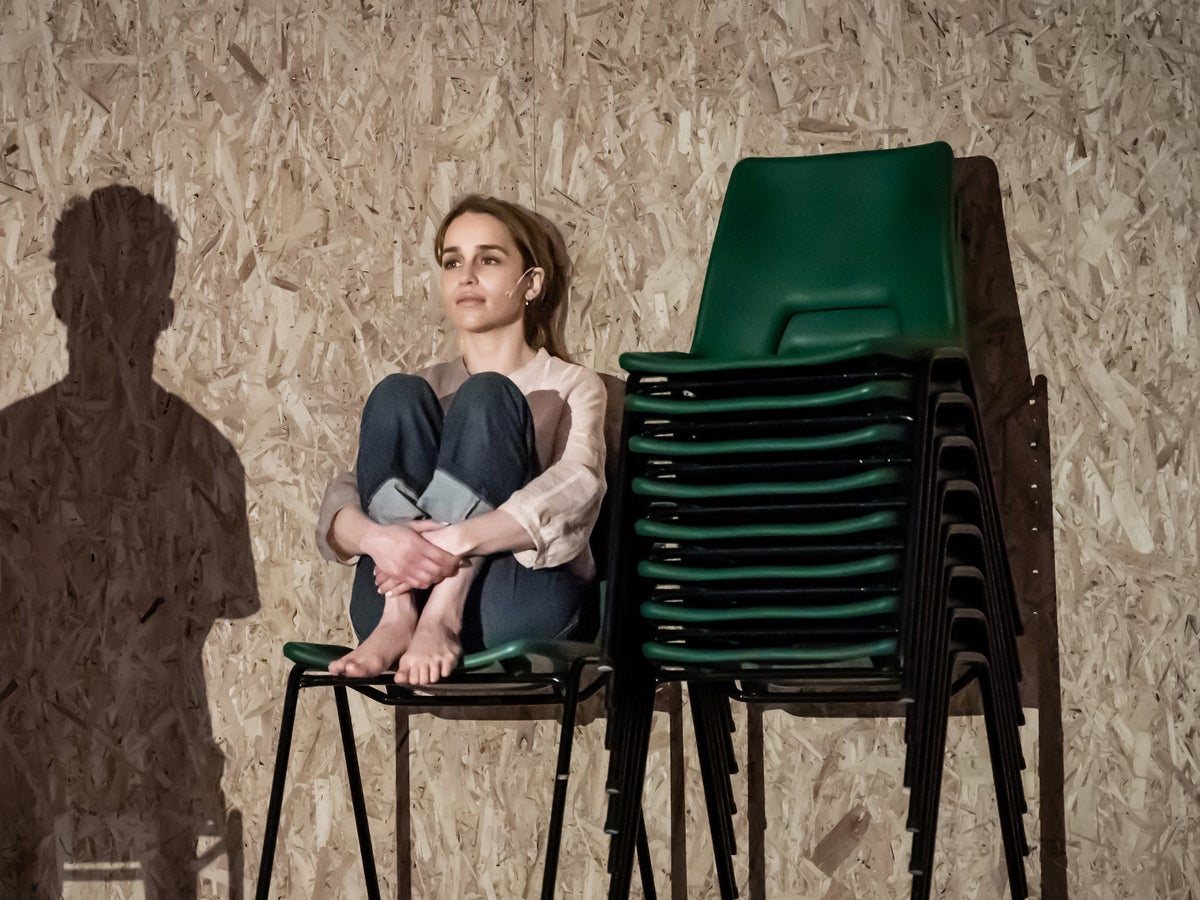
“Don’t you want to be a real actress, take risks?” someone asks Nina in Anya Reiss’s cool rewrite of The Seagull. The fact that Nina is played by Game of Thrones star Emilia Clarke, in her West End debut, adds an extra frisson. Clarke had already started playing the role in previews when theatres shut down in March 2020; she recently said that she feels she was “meant” to be in Jamie Lloyd’s production. It’s certainly been a long time coming.
So, was swapping fiery dragons for Chekhov’s metaphorical dead seagull worth it? I can definitely see why Clarke would be attracted to Reiss’s wry, thinky version. It asks big questions about how we can be artists. It’s staged in a bold, minimalist way. It seems to be reaching for something radical. But this self-consciously languorous production is going to be divisive. Some may find meaning, like the character who says Konstantin’s play made an impression on him, but “I don’t know what kind yet”. I found it unrewarding: slow-burning, always undercutting itself, to little end.
Chekhov’s 1895 play is about two things that never go well together: love triangles and tortured artists. Konstantin, who wants to be a disruptive creative force, loves Nina, who wants to be a better actress. She loves Trigorin, a famous writer who is unfulfilled by his success. Trigorin is Arkadina’s lover. She’s Konstantin’s mother. Yikes. It’s a lot. The action unfolds mostly as a set of pithy back-and-forths between the characters, who are all marinating in their own disappointments. Trigorin describes to Nina the burden of being a writer, unable to live normally without sifting everything for potential material. It’s “as if I’m eating my own life,” he says. “What am I cannibalising even the mundane things for?”
Indira Varma, one of Clarke’s co-stars in Game of Thrones, is the standout as vain actress Arkadina, bringing a sense of fun and elan that’s sometimes lacking elsewhere. “Have you ever seen me not put together? No. Because no one has,” she says, drolly, at one point. Daniel Monks too gives a very compelling performance as Konstantin, disappointed by the world’s indifference to his burdensome ambitions. Clarke’s role isn’t as box office as you may have been led to believe – it’s a minor key, unfussy performance. She’s often required to smile, gaze adoringly, or sit silently – but she conveys Nina’s earnest refusal to give up hope.
The staging is determinedly spare – just plastic chairs, chipboard walls. The actors are mic-ed up and barefoot, wearing comfy, floaty clothes. It’s hard not to compare it to Lloyd’s vastly more exciting production of Cyrano de Bergerac, given the shared visual language. But where that show swaggered, using spoken word to bring electricity to the source material, this one feels too static – almost like a radio play.
It’s the self-referential script that does for The Seagull in the end, though. Its knowingness about poking fun at theatre and writers ends up feeling smug and self-indulgent. “All speeches, no action,” Nina says of Konstantin’s play early on – it’s an arch self-awareness that dares you to take issue while guarding against having to do anything more. It seems to want to have its cake and eat it, but as Trigorin suggests, it just ends up eating itself.
The Seagull is at the Harold Pinter Theatre until 10 September







